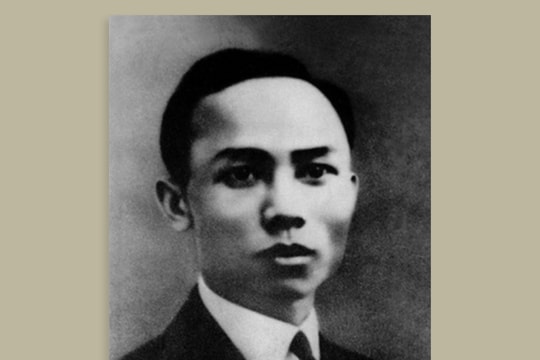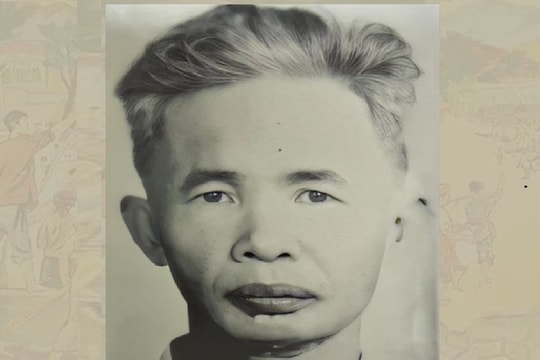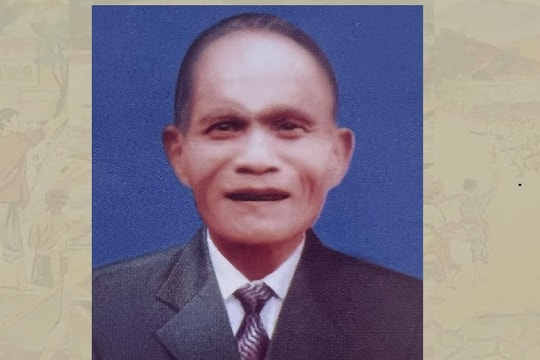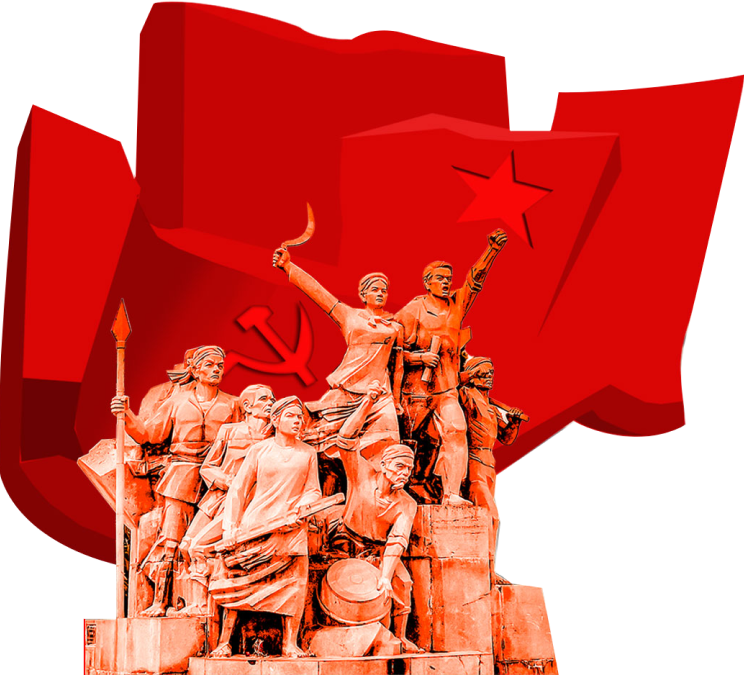Comrade Phung Chi Kien (1900-1941): Outstanding communist soldier, first general of the revolution
Phung Chi Kien's birth name was Nguyen Vy, born in 1900, in My Quan Thuong village, Van Phan commune (now Dien Yen commune), Dien Chau district, Nghe An province.
Although his family was poor, Phung Chi Kien was sent to school early by his parents. After passing the primary school exam, due to family difficulties, he dropped out of school to stay home and help his parents. In 1925, he worked for a Chinese merchant in Yen Ly Station. During this time, the Vietnam Revolutionary Youth Association Headquarters in Guangzhou (China) sent people to Nghe Tinh to work. Many young people here were sent to Guangzhou to study. Under the guidance of Le Huu Lap - a Youth Association cadre, Phung Chi Kien actively participated in reading groups, progressive newspapers and donated money to support those who went abroad.
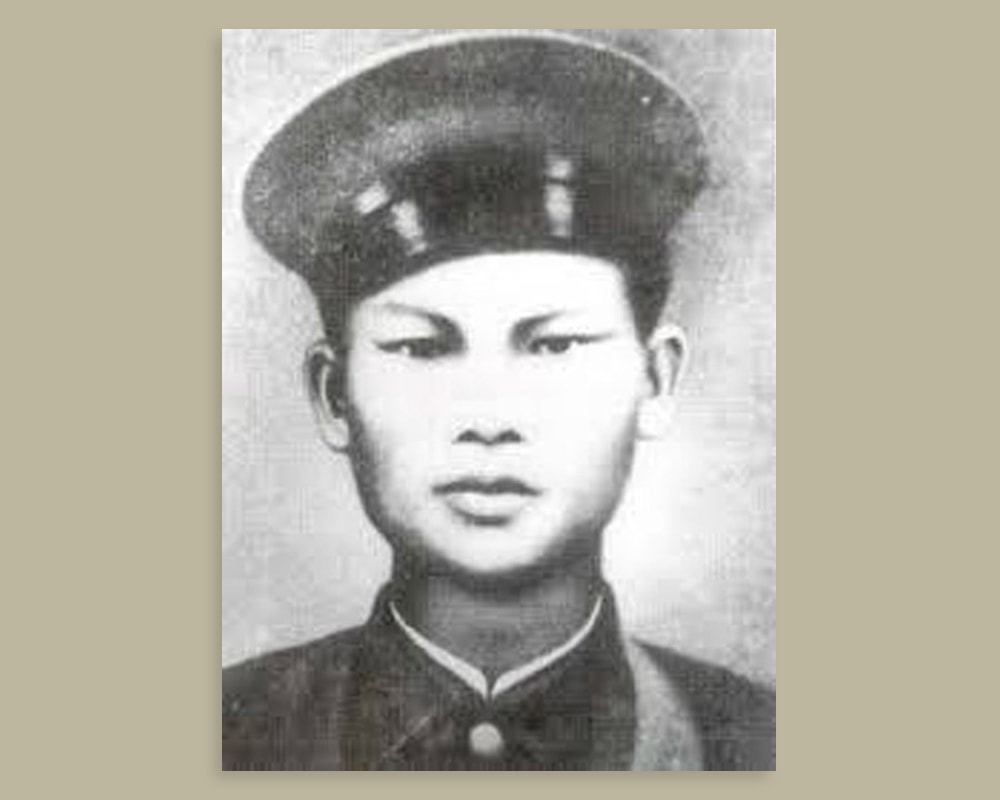
In October 1926, Phung Chi Kien went to Guangzhou to attend a political training class taught by comrade Nguyen Ai Quoc. Here, he joined the Vietnam Revolutionary Youth Association. After a 3-month political training course, he was introduced by Nguyen Ai Quoc to study at the Whampoa Military School of the Sun Yat-sen Government under the name of Meng Wen Liu.
On April 12, 1927, Chiang Kai-shek began to betray Sun Yat-sen's "pro-Russian, tolerating communism and supporting workers and peasants" policy, staging a revolutionary coup in Shanghai. On April 13, 1927, Li Jishen (Chiang's lackey) staged a coup in Guangzhou, destroying the Whampoa School. Feng Zhijian and his comrades, such asHo Tung Mau, Le Hong Son, Truong Van Linh, Le Thiet Hung... joined with Chinese communists to capture Guangzhou. In January 1928, Phung Chi Kien was imprisoned by Chiang's army for 10 months in Guangzhou. Released from prison in 1929, he was admitted to the Chinese Communist Party and joined the Red Army operating in the Dong Giang region.
In February 1931, comrade Phung Chi Kien was renamed Can by comrade Nguyen Ai Quoc and sent to the Soviet Union to study at the Oriental University with Tran Van Diem and Truong Phuoc Dat, but when he reached the Soviet-Manchurian border, he was arrested by the Chinese police. In January 1932, after being released, Phung Chi Kien was sent by the Chinese Communist Party to the Soviet Union to attend the plenary meeting of the Third International Executive Committee.
In early 1934, comrade Phung Chi Kien returned to Hong Kong (China) to join the "Overseas Leadership Committee of the Indochinese Communist Party" headed by comrade Le Hong Phong. Phung Chi Kien, together with Le Hong Phong and Ha Huy Tap, contacted the Party organization in the country, preparing for the convening of the Party's first National Congress.
After the comrade dayLe Hong PhongLeading the delegation of our Party to attend the 7th Congress of the Communist International, Phung Chi Kien and Ha Huy Tap compiled the draft documents of the Congress. At the 1st National Congress held in Macau (China) in March 1935, comrade Phung Chi Kien was elected to the Party Central Committee, in charge of Party work abroad.
In August 1936, comrade Phung Chi Kien was sent to Saigon with comrade Ha Huy Tap to directly lead the revolutionary movement in the spirit of the Resolution of the 7th Conference of the Communist International and the Resolution of the Party Central Committee Conference on July 26, 1936. One year later, at the request of the revolution, Le Hong Phong returned to Saigon to work, while Phung Chi Kien returned to China to direct Party work abroad.
On October 23, 1936, Comrade Phung Chi Kien was arrested by the British police for 2 months in Hong Kong and then expelled from Hong Kong. He went to Shantou town (Guangdong province) and passed through Kunming (capital of Yunnan province). Here, Phung Chi Kien and other comrades consolidated the Party's leadership abroad, published the "Dong Thanh" newspaper and established the Vietnam Association to support the Chinese people in fighting the Japanese. In early 1940, Comrade Nguyen Ai Quoc arrived in Kunming. Phung Chi Kien reported to him about the situation and activities of our Party abroad. Comrade Phung Chi Kien often took Comrade Nguyen Ai Quoc to work in many places such as Mong Tu, Nghi Luong, Khai Vien, Chi Thon... in Yunnan province.
In June 1940, the world situation changed in favor of the Vietnamese revolution. Comrade Phung Chi Kien urgently prepared for leader Nguyen Ai Quoc to return to the country and together with him moved to Tinh Tay town (Quang Tay province) bordering our country. In Tinh Tay, under the direction of leader Nguyen Ai Quoc, Comrade Phung Chi Kien and comrades Pham Van Dong and Vo Nguyen Giap organized training for 40 Vietnamese youths to bring to Cao Bang to build a revolutionary base.
On February 8, 1941, Phung Chi Kien went with Nguyen Ai Quoc to Pac Po (Cao Bang province). At the 8th Conference of the Party Central Committee in May 1941, comrade Phung Chi Kien was elected to the Party Central Committee, directly commanding the Bac Son - Vo Nhai base area.
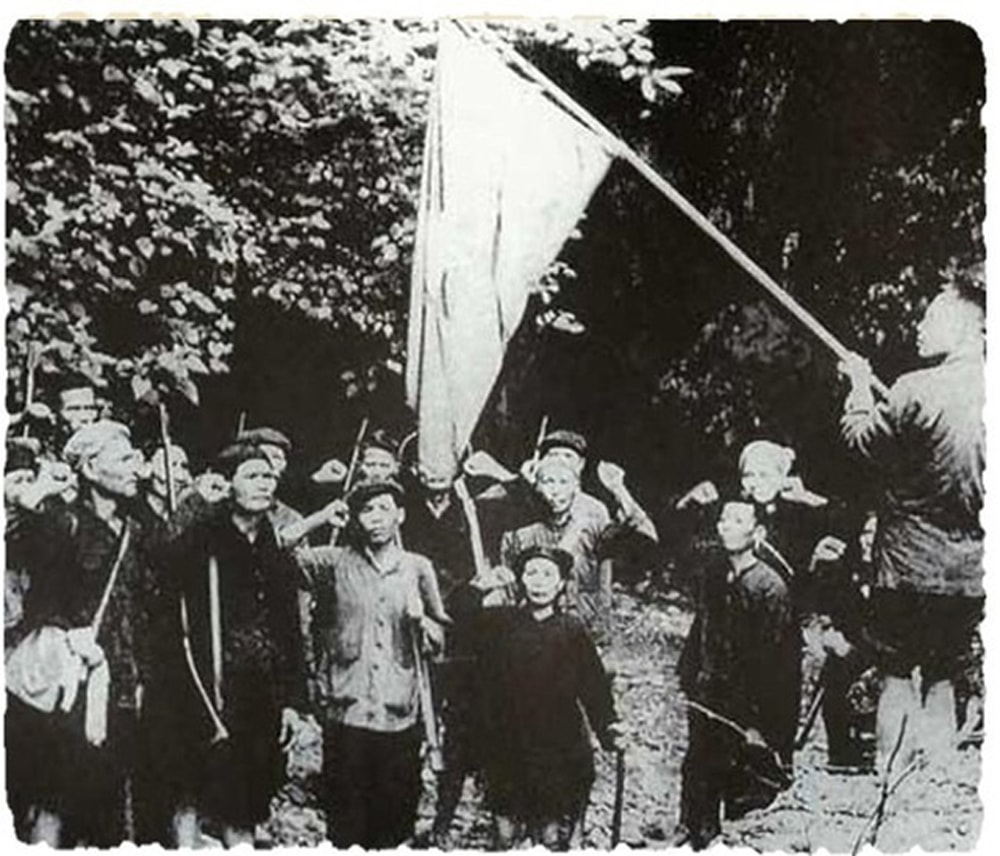
At the end of June 1941, the French colonialists mobilized more than 4,000 troops to surround the Bac Son - Vo Nhai base area to destroy the National Salvation Army and the Party's headquarters, suppressing the Bac Son revolutionary movement. Comrade Phung Chi Kien led the National Salvation Army Platoon to protect the safety of the Central Committee members and prepare to fight against enemy terrorism. In the unequal battle with the enemy in Ngan Son district (Bac Can), comrade Phung Chi Kien fell into the enemy's hands after firing his last bullet.
He died heroically on August 21, 1941.
The sacrifice of Comrade Phung Chi Kien was a great loss for the revolution at that time. On July 23, 1947, in appreciation of Phung Chi Kien's contributions, in the Government Council meeting, President Ho Chi Minh signed Decree No. 89/SL posthumously conferring the rank of General on him. This was the first general conferment decree of the Democratic Republic of Vietnam.

